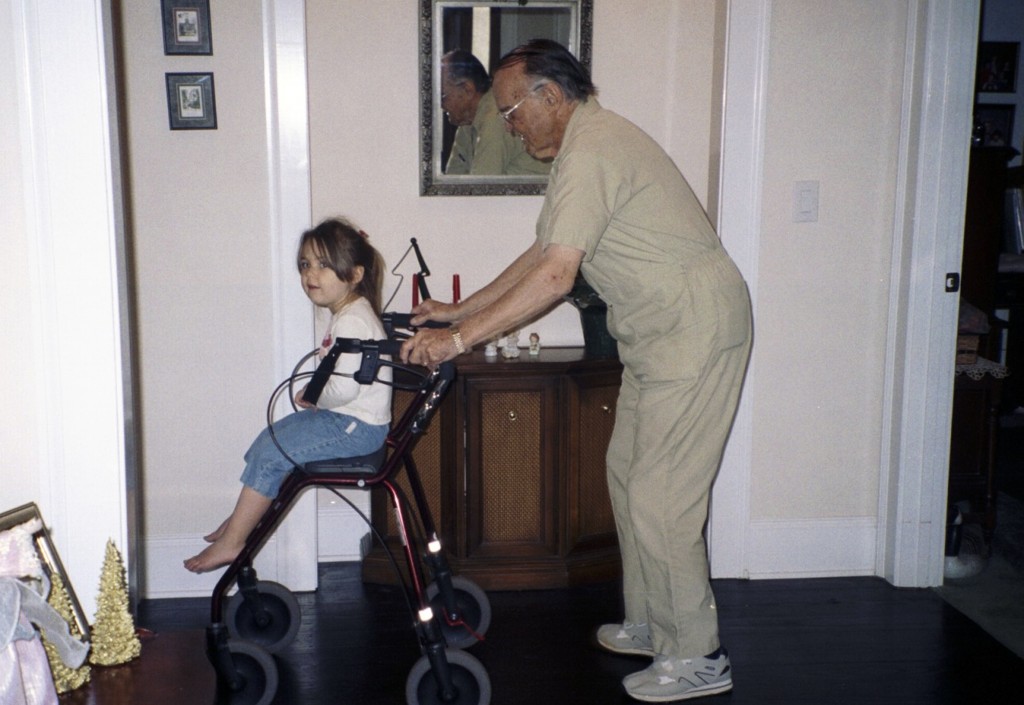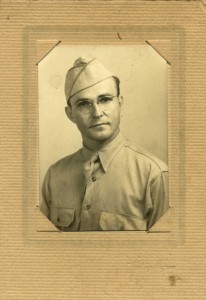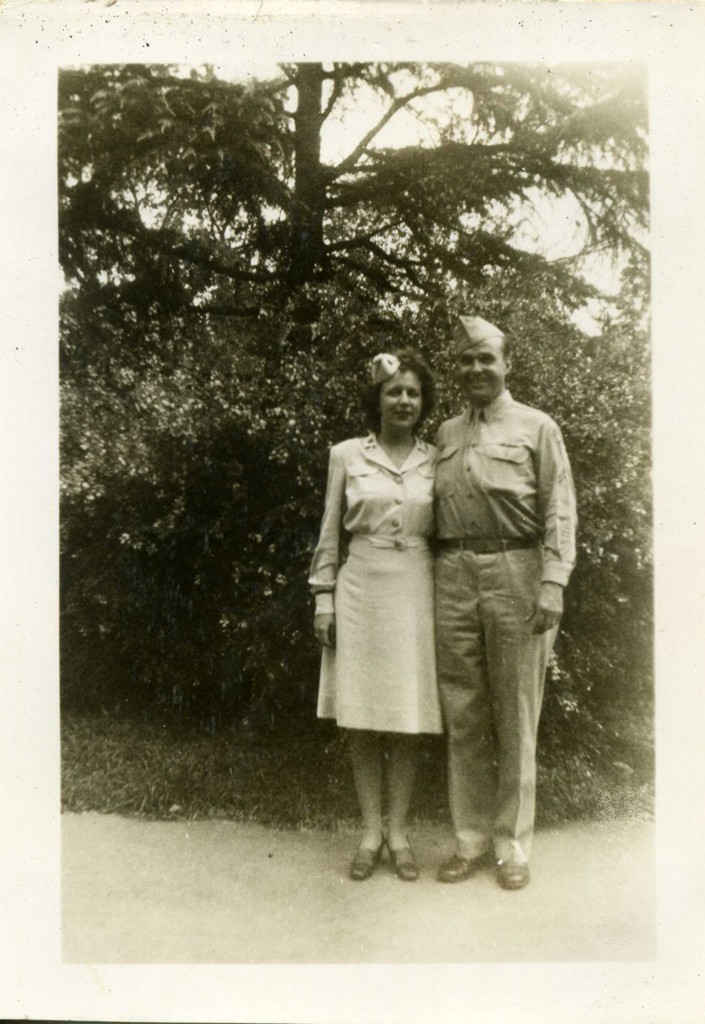
“Daddy, can I help you?”
“Oh, Sugar, I just can’t seem to get my fingers to cooperate.”
“That’s okay. Here, I can do this.” I buttoned his shirt. “There. All set.”
He smiled and patted me on the shoulder. “What would I do without you?”
I heard that loving question hundreds of times. “Oh, you’d do fine,” I would say, but we both knew differently.
“Have you got anything sweet?”
“You know I do. I made chocolate pudding, and you can have these oatmeal cookies if you want.”
“That sounds good.”
“Daddy, how big do you think those birds are?”
We had been watching huge birds, probably American black vultures or the more common turkey vultures, whose wingspan can measure six feet or more, soaring above the trees behind our house. Daddy was always my go-to expert on birds. Before he retired, my father had worked for the U.S. Fish and Wildlife Service. He had loved and studied birds for years.
“I don’t know, Shug.” He smiled wanly. It hurt him not to be able to recall what he had once known so well.
“What do you think? Eight feet?” I asked, trying to keep the conversation going.
“Probably. You know they can soar almost indefinitely like that, as long as the air currents are right.”

“How do they do that?”
He explained that wherever there are people or animals, there is increased heat. Warmer air rises and creates the air flow that birds use for lift. They can manipulate their height just by lifting one wing or the other to catch the drift of the warm air. “They can go as far as fifteen miles or more without ever flapping their wings,” he added. “They’re fabulous creatures.”
I had witnessed many times how the memories my father thought he had lost would come back to him when tickled with the right questions. This is how we spent our breakfast and lunch every day, looking out on the wonderful habitat that was our backyard and talking about God’s creatures. Daddy was a fabulous storyteller, but these days he often fell into the quicksand of failing memory and depression. I worked hard to bring him back to the surface during these times.
“I hope that tree never gets cut down,” I said of the tallest tulip poplar, which was the birds’ favorite perch.
“That would be a shame,” said Daddy quietly.
I got up and cleared the table, and he shuffled off to fall asleep in his chair in front of the television, where he would stay till I called him to supper.
Such was our life now. I fixed breakfast, sat with Daddy at the breakfast table for two hours or so, cleaned up, prepared lunch, sat at the same table for another two hours, cleaned up, and did it a third time for supper in the evening.
My father was a dementia patient. Strong as an ox, he had the heart of a teddy bear. He smiled when you entered the room and called everyone “Shug,” or more formally, “Sugar.” At some point, what had been my childhood nickname became a generic moniker for the family members and caretakers whose names would escape him.
Daddy was one of the 20 to 40 percent of dementia patients who fall outside the more common box of Alzheimer’s. In my father’s case, we knew the origin of his brain disease. Throughout his life, he had experienced several severe brain traumas.
At Georgia Tech, he played college football at a time when the only head protection was a thin leather helmet. He experienced countless blows to the head, including multiple concussions. Then, in 1939, he had an automobile accident — a head-on collision that should have killed him, but left him in a coma for months. When he finally regained consciousness, he was unable to walk, sit, or stand. His spinal cord was intact, but his brain was so badly bruised that messages intended for his extremities were unable to arrive there.
Released from the hospital with a hopeless prognosis, my father was determined to prove the doctors wrong. Every morning, he was parked under a tree in his wheelchair. Every morning, he threw himself out of the chair onto the ground. Over the next weeks and months he used the tree to pull himself up to first a crawling position, then to standing. He would move away from the tree — first inches, then feet — until he fell to the ground. He would then drag himself back to the tree and do it again and again and again. A man of faith, he never lost hope that he would walk again.
Decades later, my father ran, swam, and played tennis without even a limp.

My mother was a nurse and was assigned to care for Daddy when he was injured. They fell in love and continued to correspond after he left the hospital. When World War II broke out, she joined the U.S. Army Nurse Corps. My father enlisted in the Army Air Corps. While serving in England, he suffered another head injury when he fell off the wing of an airplane onto the concrete runway.
Daddy recovered again. In 1945, my father and mother were married.
Growing up, I heard the story of “the wreck” many times, but the man I knew was completely whole. He taught me tennis, made me go to church, and was a strict disciplinarian. In all ways, he seemed normal.
Daddy adored my mother. I never knew him to leave the house or come home without kissing her, even if he was just walking to the corner mailbox. There was no doubt that family was the most important thing to both of them.
In 1981, Daddy was involved in another head-on collision. His car landed nose down in a creek bed, and the impact threw his head into the steering wheel, crushing his face. This accident left him with hydrocephalus — swelling and fluid in the brain. A doctor told him that his cumulative head traumas had added ten years to his age.
My father never fully recovered. His personality did not change, but his memory became worse and worse.
The symptoms at first were not so noticeable, and he lived the next ten years in happy retirement. Then my mother died in 1991, and his decline accelerated. My mother had been his world, and without her, life lost its purpose.
It became more and more obvious that my father should not be living alone. My husband Paul and I built a new house and asked him to move in with us.
Daddy had lived in the same home for four decades. Memories of his long, loving marriage reigned in every room. He liked to mow the grass around the flower beds, which had been my mother’s passion. I had to take all this away from him, and he was resistant to the end.
Finally, Daddy moved in. My daughter Julie and her two-year-old daughter were living with us as well, which made ours a four-generation household. My granddaughter called him “Greatdaddy.”
My life revolved around Daddy. After a year and a half, I went to work part-time, but a string of small accidents made me uneasy about leaving him alone. My daughter quit her job and became his caretaker for a year. I left my job so that I could be with him all the time and Julie could go back to work. We had a woman come in three times a week to bathe him, because that was the one thing that neither my daughter nor I could do.
I did learn to take him into the men’s bathroom when we were out, because I had no choice. It was not fun.
He was hospitalized several times in the last years of his life. After he fell trying to get to the bathroom in his hospital room, I stayed there with him all the time, once for three weeks when he had very severe pneumonia. His doctor admitted later that he was surprised my father survived. I never really minded these hospital stays because we had extensive opportunities to hold hands and laugh at silly old sitcoms like The Golden Girls. He wanted me there, and I needed to be there as well, for my own peace of mind.

When I was diagnosed with breast cancer, we moved him to an assisted living facility. When I told him about my disease, he said only, “I’m sorry, Shug.” I thought he didn’t understand the severity of what I had told him, but every time I came to see him, the first thing he would say would be, “Are you doing okay?” I think he knew.
I had wanted to bring him home again when I was strong enough, but I didn’t have that chance. A few months after I finished my treatments, he made the final trip home to be with God. He was ninety-two.
While I felt some relief that his suffering was over — he had not been happy for a long time and was now together with my mother — my grief was almost unbearable. I had now lost both my parents, and I will never get over the loss.
And yet I am grateful that I had the chance to take care of my father near the end of his life. His illness never took away his decency — his love of his family, and his deep faith in God. He accepted his condition, and the patience and courage he showed throughout taught me a lot. In the time left to me with my children and grandchildren, I pray I can live my life, and face my death, with the grace learned at my father’s feet.
An Atlanta native, Kae Dickson lives in Cumming with her husband, three dogs, and a cat. Together they have five daughters and four grandchildren. Her love of God, family, and the South is reflected in her poetry, essays, and short stories.
To watch a 2000 Georgia Tech alumni interview with Kae Dickson’s father, James Richard Dawsey, click here.
- Follow us on Twitter: @inthefray
- Comment on stories or like us on Facebook
- Subscribe to our free email newsletter
- Send us your writing, photography, or artwork
- Republish our Creative Commons-licensed content

